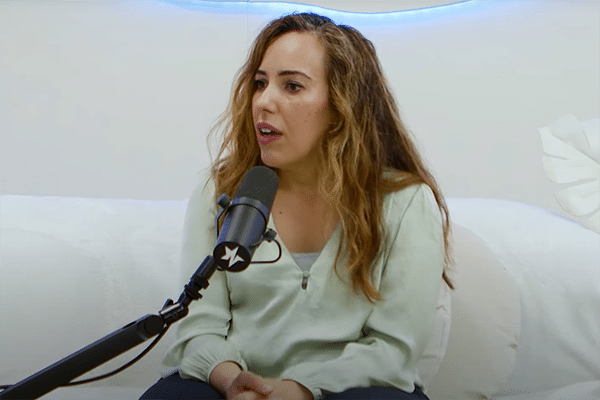The MintPress podcast, “The Watchdog,” hosted by British-Iraqi hip hop artist Lowkey, closely examines organizations about which it is in the public interest to know—including intelligence, lobby and special interest groups influencing policies that infringe on free speech and target dissent. “The Watchdog” goes against the grain by casting a light on stories largely ignored by the mainstream, corporate media.
It is now four years since Julian Assange was imprisoned in Belmarsh’s high-security prison in London and eleven since he was forced into hiding in the Ecuadorean Embassy in the same city. But even before then, the Australian publisher and WikiLeaks co-founder has been under relentless attack from powerful bodies his organization exposed.
Today in “The Watchdog” studio, Lowkey is joined by Assange’s wife Stella. Stella Assange is a South-African born lawyer and human rights defender. Her most famous case is undoubtedly that of her husband, whom she married in 2022. For years, Stella has tirelessly traveled the world raising awareness of Julian’s situation. Before marrying Julian, she attained degrees from the School of African and Oriental Studies (SOAS) in London and from the University of Oxford. Earlier this year, she met with Pope Francis to discuss the situation of whom Lowkey described as “the political prisoner of our time.”
For Lowkey, Assange’s brilliance was taking his anti-war passions and finding a way to directly work with units within the U.S. military to make the public aware of the illegal, immoral, and deeply unpopular decisions being taken in our name. As he said today:
Some of the most deeply heinous and hideous aspects of the Iraqi and Afghan occupations by the U.S., Britain and their allies, have been revealed within the WikiLeaks files. We are talking about millions of documents being made available to the public to understand truly what was happening.
Perhaps the most infamous leak was the “Collateral Murder” video, which showed footage of American helicopter pilots casually carrying out a massacre of Iraqi civilians in Baghdad in 2007, two of whom were Reuters-employed journalists.
Despite this, the media cheered Assange’s arrest. The Washington Post’s editorial board, for example, claimed Assange was “no free-press hero” and insisted the arrest was “long overdue.” Likewise, The Wall Street Journal demanded he faces some “accountability,” claiming, “His targets always seem to be democratic institutions or governments.” Yet, as Lowkey and Stella discussed today, the implications for a free press from this case are extraordinary and perilous.
Stella also put a human face to the story, discussing how difficult her husband’s persecution has been. “It’s a daily struggle. It is up and down… Prison life is part of our daily life,” she said, noting that prison authorities limit how much they can speak. When she first met Julian, he was 39. He is now 52, and his health has seriously deteriorated.
Yet even if Assange is somehow liberated, he has still suffered greatly, as Stella told Lowkey. “We will still have been robbed of our lives together. Our children will have been robbed of their early childhood with their father. We are never going to get that back,” she said.

